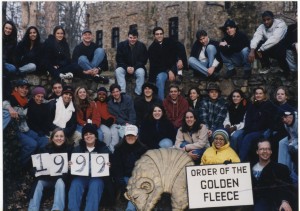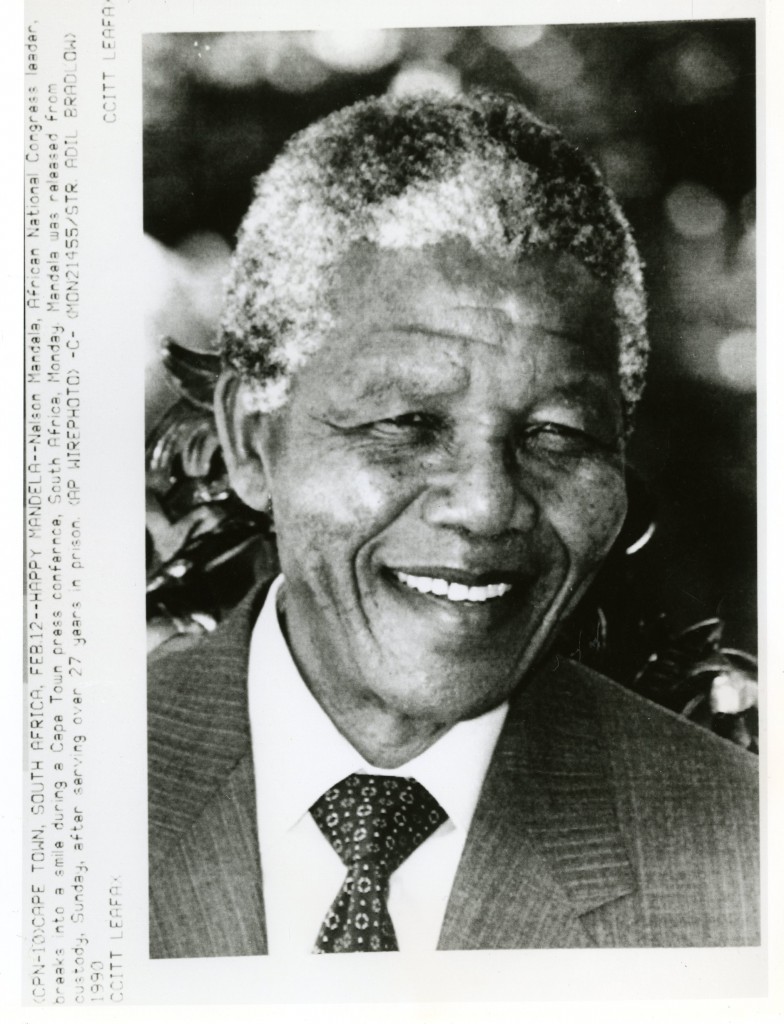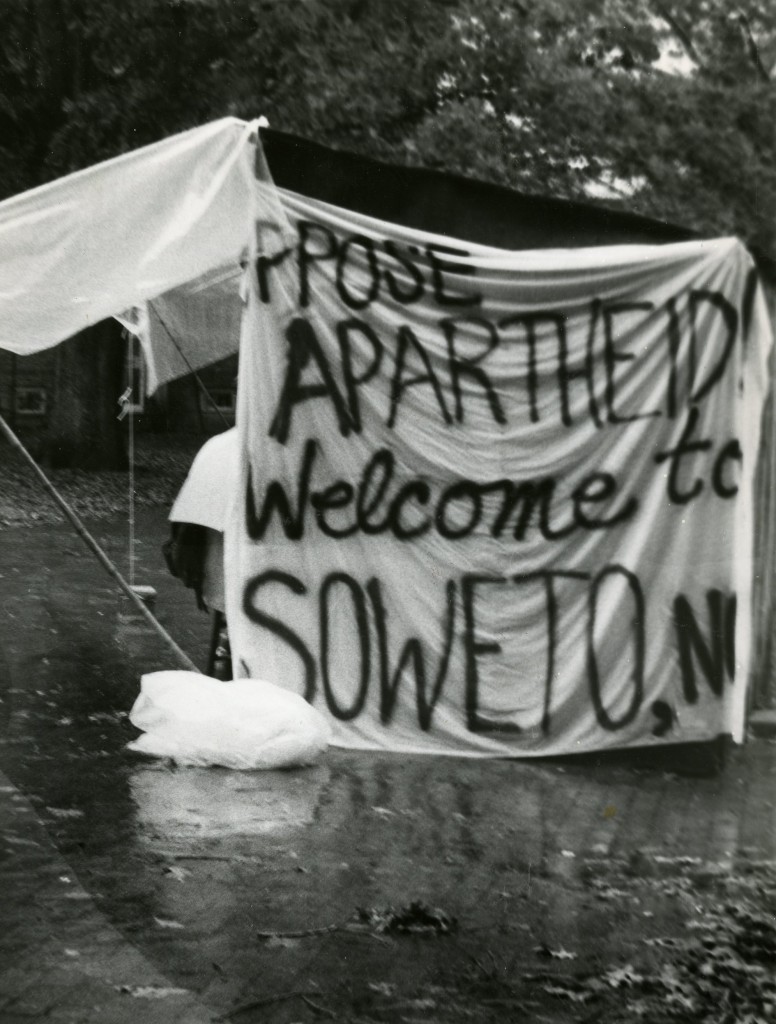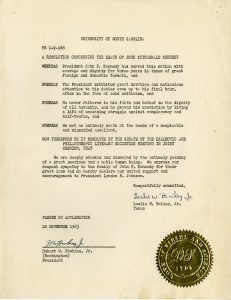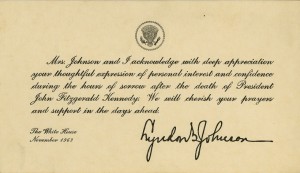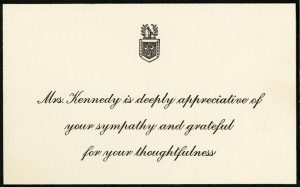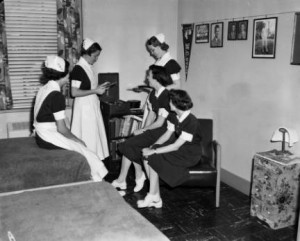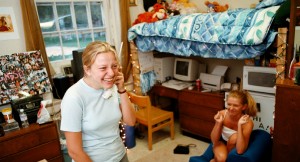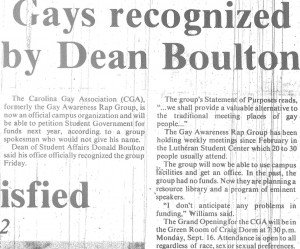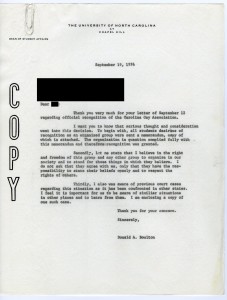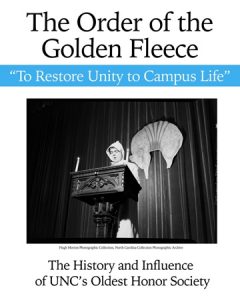
Sign for University Archives’ new exhibit on the Order of the Golden Fleece, now in the fourth floor reading room of Wilson Library.
This year the Order of the Golden Fleece celebrates its 110th anniversary, and University Archives is recognizing this milestone with an exhibit tracing the history and influence of the society on campus.
The Order, UNC’s oldest honor society, was founded in 1904 with the purpose of “restor[ing] unity to campus life.” Bringing together leaders from many different aspects of student life–athletics, debating societies, fraternities, and other areas–the Order hoped to alleviate factionalism and conflict on campus through cooperative leadership.
In their first year, they were called upon to mediate a conflict between the sophomore class and a group of medical students. In what was called the “Soph-Med Affair,” a group of sophomores had insulted some first year medical students, and the medical students had called for the sophomores to be expelled. In order to ease the conflict, the Order of the Golden Fleece worked with the sophomore class to produce a kind of anti-hazing campaign that –in contrast to anti-hazing campaigns of today — placed responsibility for preventing hazing on first-year students themselves.
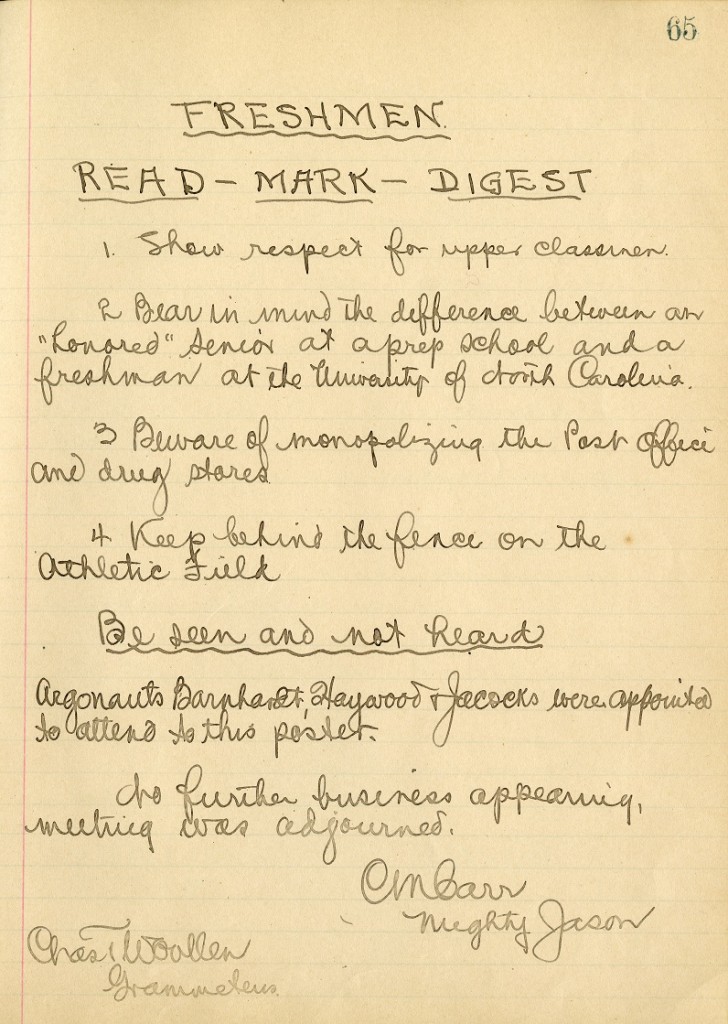
Text of a poster produced as part of an anti-hazing campaign recorded in the Order of the Golden Fleece Minutes, November 1904. From the Records of the Order of the Golden Fleece, (#40161), University Archives.
In posters across campus (the text of which is reproduced in the Order’s minutes, seen at right) first year students were urged to “be seen and not heard” to avoid drawing the ire of older students.
Another product of the “Soph-Med Affair” was the university’s first student government. The conflict highlighted the need for a mediating organization to handle such conflicts within the student body, and the Order met with President Francis P. Venable to discuss the possibility of a “University Council.” The seven-member council they proposed would mediate disputes, handle honor code violations, and investigate hazing incidents. The University Council was established later that year, and became the first student government established at UNC.
Over the years, the Order has continued to unite campus leaders and influence student life. To learn more about the Golden Fleece’s history, check out the new exhibit in the fourth floor reading room of Wilson Library! The exhibit will be open through March 7th.

